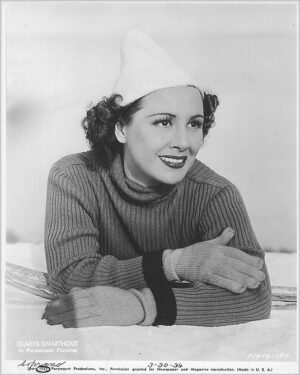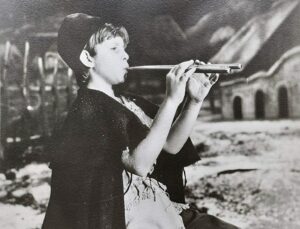At the press conference following the dress rehearsal of the Metropolitan Opera’s new production of “Les Troyens,” the stage director Nathaniel Merrill made a statement that I never expected to hear in that house. “We planned this production,” he said, “for people who are willing to think for themselves.” If this is true, and I have no reason to doubt Merrill’s intelligence or veracity, then the Met is truly launched into a new era.
Any way you look at it, the new production is a stupendous achievement. Most important, of course, is the simple fact that it restores to our eyes and ears a towering musical and dramatic masterpiece, whose stature has until recent years been little more than a shadow across the pages of music-history textbooks. Every aspect of the production reflects awareness of the stature of this work by the person or persons involved; what we see or hear on the stage and in the orchestral pit takes the full measure of Berlioz’s awe-inspiring creation.
This cannot have been easy, because this particular work of Berlioz reveals its glories subtly and slowly. Most of the music by this composer that we know well – the “Fantastique” and “Harold,” “Faust,” the “Requiem,” and “Roméo” – are the products of his rich, robust and extroverted earlier years. The sweeping majesty of this music is relatively easy to experience, “Les Troyens” is a jagged, difficult score. Even the flamboyant moments in the early scenes: the exultant opening chorus, the crushing tragedy of the destruction of Troy, the harrowing frenzy of Cassandra’s unheeded songs of doom – these are set to music that is intricate, austere, slow to reveal its tensions and its power. In “Faust” Berlioz has his Mephistopheles remark that the art of counterpoint represents “La bestialité dans toute sa candeur,” but it is that same “bestiality,” in the hands of a composer who by 1856 had taken on the insights of a sublime master of musical drama, that motivates and lends dazzling intensity to these haunting early scenes of his vast dramatic panorama.
The music of the later scenes, the doom-ridden love of Dido and Aeneas, is no less subtle. Berlioz never takes the easy way out here, the sort of all-purpose exoticism that a Meyerbeer, say, might have evoked to paint his scenes and his moods. He has become a keen observer of the French language; like Rameau before him and Debussy later on, he allows the supple rhythms of that language to direct his melodies. No composer of his century set French to music with such insights, such power to invent long, sinuous, non-symmetrical phrases that twine inseparably around words and phrases and penetrate deeply into their dramatic implications. The colors that he finds in his orchestra to clothe these words – the still, quiet lushness of the love music, for example, and the single foreboding stroke that ends it – draw us toward this music, but it is not easy music to assimilate even so. In examining the complete workmanship of “Les Troyens” from afar, one is at first astounded at the vastness of the dramatic problem which Berlioz had set for himself to solve, and then by his continual self-denial of the easy solution in favor of the more personal, difficult, complex alternative.
“Les Troyens” is, therefore, like no other opera the Metropolitan has attempted, and this makes the triumph of the present production all the more astonishing. Rafael Kubelik has had to make his orchestra into a Berlioz ensemble with no precedent for the task – to work for the hard clarity in the brasses, a perfect balance in moments where a few winds, strings and harps must shimmer like moonbeams, an absolute definition of percussion sounds. Fortunately, the management has been able to find him sufficient rehearsal time to bring this about, and he has put this time to good use. The playing of his orchestra is almost the single most spectacular element in this production -its playing, and the uses that Kubelik himself puts into it, with his fine sense of pacing, his impeccable mastery of every nuance in the score.
He has been aided immeasurably by the work of an almost perfect cast. Jon Vickers’s Aeneas is the work of a supreme musical artist, a singer with more command than anyone I know of dramatic vocal color, a man whose every musical gesture means something vital to the situation in which he is involved. While not perfectly endowed by nature to suggest either the heroism or the ardor of Aeneas – and his Gorgeous-George blond wig really ought to be reconsidered-Vickers is one of those exceptional singers whose command of the art of singing dwarfs any and all other considerations. Shirley Verrett, who sings both the Cassandra and, because of the continued illness of Christa Ludwig, the Dido, has for herself a stunning triumph in both roles. She is glorious to behold, and her luscious, pliant voice is at this moment in prime estate. The range of moods she must encompass during the long evening, the flaming passion in the melodic lines Berlioz invented for both of his heroines: these are incredible challenges, and Verrett has met them in a way that has to rank as one of the great personal “tours de force” in the company’s 90-year history. Mignon Dunn, as Dido’s confidante, and Louis Quilico, as Cassandra’s lover, are also outstanding in the large cast which has been welded into a marvelously integrated performing unit. Words of the highest praise must also be summoned for the chorus, which has a great deal of difficult work to do in this score, and does it exceptionally well.
The sets are by Peter Wexler, and the direction by Merrill, and they do as well by the eye as the musical forces do by the ear. Timidly, but with considerable success, the Met has stuck its toe into the production techniques of its own century. There are movie projections skillfully employed here and there, notably for Cassandra’s vision of the Horse in the first act, and for the Royal Hunt and Storm in the second. I think the latter might have worked better if the pictures had been thrown on a wider screen, rather than on a small circle of the back wall, but one has to begin somewhere. The scenes at Troy are set on a series of rotating staircases, platforms, and geometric figures that move quickly and easily to change the settings without interrupting the music. Best of all, they leave plenty of empty space on the stage, which Merrill fills with musical forces, rather than with extra stage paraphernalia. That in itself is a major step forward for the Met.
One must note for the record, of course, that Sarah Caldwell’s Boston production had, on a tiny made-over stage, both a full-sized wooden horse and a realistic destruction of Troy – both great fun to watch if not specified in the sore. Wexler and Merrill merely suggest these effects with their lights and projections, leaving the mind free to experience and interpret. It works both ways.
Wexler’s costumes are marvelous, and Merrill’s groupings of his colors, especially in some of the massed choral scenes at the Trojan court, may remind you of some grandiose panoply that Delacroix might have painted. A Delacroix mood is, of course, just right for the sounds of Berlioz.
The Carthage scenes are handsome, but again fairly simple: drops and relatively few pieces of stage furniture. It is a pleasure and one rarely accorded, to find the Met putting so much trust in music and people to bring a dramatic action to life. Not that this is, an any way, an economical production, but at least – as Schuyler Chapin pointed out with deserved pride -it was brought in at its $400,000 budget. Todd Bolender’s choreography, for a relatively small number of the Met’s rather seedy ballet corps plus a few acrobats, is charming and witty, one of the best pieces of work you’ll see at the house these nights.
“Les Troyens” is, all in all, a stupendous achievement for the company, a tribute to the vision of its new regime, and an accomplishment that has surpassed in actuality the hopes that were raised for it. Among the spectators at its unveiling was Rudolf Bing, who has publicly pronounced the work “a crashing bore.” May he derive heartburn from eating his words.
On this day in 1883 the Metropolitan Opera gave its inaugural performance.
Henry Krehbiel in the New York Tribune:
The performance of the opera was on the average plan of performances of the same work not better as a whole nor worse as a whole. The fears that had been generally felt that Signor Campanini would not show a complete amendment of the faults which were so conspicuous during his last season at the Academy of Music were unfortunately realized. Occasionally the old-time sweetness and again occasionally the old-time manly ring were apparent in his notes but they were always weighted down by the evidence of labor, and the brilliancy of the upper tones with which he used to fire an audience into uncontrollable enthusiasm, was gone. The rest of a year which he has taken has not repaired the ravages of the last five years, Such a result is peculiarly unfortunate in Gounod’s music. The third act speaks the every ecstasy of passion, given the voice, and no music ougtht to be sung easier. Its sentiments crowd forward eagerly for utterance, and every phrase is impassioned eloquence. One could think that the singers would only need to open their mouths and the entrancicng sounds from the orchestra would lure the melodies out. When, instead of such spontaneity the music is given with indication of hard work, the life is gone out of it at once. This weight rested on much of the love music last night, and whenever it did the spirit took flight and the melodies and harmonies were of the earth earthy.
Of Mme. Nilsson’s Margherita there is little to be said that has not been said over and over again. For the transformation which the poetical character has undergone, not she, but the authors of the opera are responsible…All that Mme. Nilsson sings, as all that she does, is so imbued with a current of sympathy that there is no resisting her whether she be reproducing the ideal of the author or giving instead her own conception of the character. We would not that Goethe’s sweet child should do as Nilsson does, but we would not that Nilsson should do otherwise. Yet the verities of art are not violated, for opera is such an incongruous and irrational art form that it makes and shirfts its standard with every new production.
Mme. Nilsson’s triumph came in the jewel song, where it was expected, for it is the golden link with which last year she established the connection between her concert room and the memorable night at the Academy where she first sang her way to the hearts of the people. After she had sung it last night the last film of ice that had held the public in decorous check was melted, and an avalanche of plaudits overwhelmed the fair singer. Bouquets rained from the boxes and baskets of flowers were piled over the footlights till it seemed as if there was to be no end…Signor Campanini was also remembered in profuse flowers and other marks of kind appreciation; and Mme. Scalchi, who did the most artistic singing of the evening, was not forgotten though her guerdons were not commensurate with her merits. For Mme. Louise Lablache, who took the place of the mother who was under the ban of the law, and did her work cleverly, and for Signors Del Puente and Novara, we have time only to chronicle a performance of work of the high degree of merit to which they in part have accustomed us.
Of the mechanical parts of the performance nothing is to be said except words of praise. The pictures were beautiful, all of them. Nothing was shirked, and the highest skill and ingenuity seemed combined in constructing scenes of fascinating beauty and almost perfect illusion.
Birthday anniversaries of composers Federico Ricci (1809)and Franz Liszt (1811); conductor Carl Muck (1859); tenors Giovanni Martinelli (1885) and Günther Treptow (1907) and sopranos Esther Réthy (1912) and Elizabeth Connell (1946).



